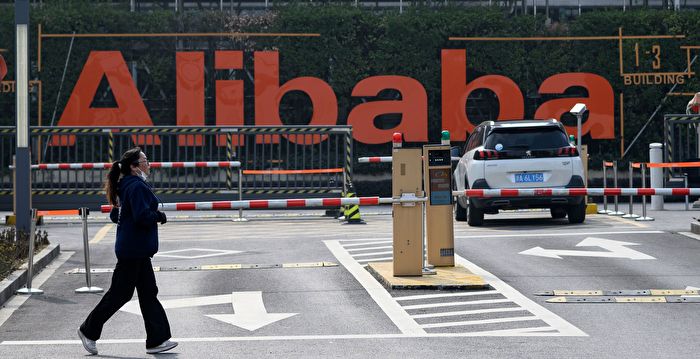[The Epoch Times, August 16, 2022](The Epoch Times reporter Chen Ting comprehensive report) At the request of the authorities, Chinese tech giants have shared details of their algorithms with regulators, an unprecedented move that shows how the CCP is taking the technology industry. Stricter regulation.
According to CNBC, the Cyberspace Administration of China recently released a list of 30 algorithms (links) with a brief description of what they are used for. Companies on the list include e-commerce company Alibaba, gaming giant Tencent, Douyin parent company Beijing ByteDance, and Chinese portal company Sina, among others.
Algorithms (Algorithms, also translated as algorithms) are the secret to the success of many Chinese technology companies. They can recommend products or videos to users based on customer information.
The Chinese authorities’ move to establish a registration system for algorithms is unprecedented. Neither the United States nor the European Union have issued similar regulations.
On March 1, the CCP implemented the “Regulations on the Administration of Algorithm Recommendations for Internet Information Services” (link) to regulate the way technology companies use algorithms. These rules include allowing users to opt out of personalized recommendation services and requiring companies to license Internet news information services.
Over the past two years, Chinese authorities have tightened regulations on China’s tech industry in areas such as data protection and antitrust to rein in the power of Chinese tech giants. Since last year, China’s technology industry has slumped in share prices and laid off tens of thousands of workers amid massive regulation, as companies struggle to cut costs and downsize non-core businesses. This has also led to huge losses for global investors.
The regulations passed in March also require companies to submit details of their algorithms to the Cyberspace Administration of China.
There are not many details in the public filing. For example, the “Douyin Personalized Recommendation Algorithm” produced by Beijing ByteDance indicates in the document that its “main purpose” is to recommend pictures that users may be interested in through behavioral data such as click records, viewing time, likes, comments, etc. texts, videos, goods and services, etc.
Alibaba’s “Taobao Recommendation Algorithm” uses users’ visit footprints and historical search data to recommend content, goods and services on the homepage and other parts of the app, the document said.
CNBC noted that despite the brief disclosure of the CAC’s public documents, it is unclear how much Chinese authorities know about the inner workings of technology companies’ algorithms.
CNBC has reached out to Alibaba, Tencent, Baidu, ByteDance and NetEase for comment.
Chinese Communist Party May Use Algorithms to Strengthen Public Opinion Control
Previously, analysts have warned that the CCP is trying to control the algorithm to further guide public opinion.
Liu Shuting, an analyst at Taiwan’s Ministry of National Defense think tank “National Defense Security Research Institute”, analyzed in the article “The CCP Uses Algorithms to Promote Public Opinion Guidance” (link), the CCP’s public opinion guidance, in addition to producing and disseminating content that conforms to its ideology through the media, is also committed to Ensure that when people search for information on media platforms, the “search results” they get are filled with information that is beneficial to the CCP.
Liu Shuting believes that the CCP’s algorithmic control of technology platforms is part of its strategy. This also seems to be in line with the goals put forward by Chinese President Xi Jinping in 2019, when Xi Jinping demanded “explore the application of artificial intelligence in news gathering, production, distribution, reception, and feedback, use mainstream value orientation to control ‘algorithms’, and comprehensively improve the guidance of public opinion. ability”.
Since then, the CCP has introduced a number of regulations to gradually increase its control over algorithms. In the “Regulations on the Administration of Algorithm Recommendations for Internet Information Services”, it is stated that the information services of media platforms must conform to the “mainstream value orientation” and “actively spread positive energy”.
According to the “Regulations on the Ecological Governance of Online Information Content”, the CCP requires that the recommendation mechanism and page management of media platforms must comply with the CCP’s political requirements.
Prior to this, the CCP also announced the “Guiding Opinions on Strengthening the Comprehensive Governance of Internet Information Service Algorithms”, emphasizing that media platforms must assume the responsibility for self-censorship of algorithm recommendation services.
Liu Shuting pointed out that in the past, studies have found that the CCP uses Douyin’s algorithm to achieve the purpose of official propaganda. From March to June 2020, the study examined the 50,813 videos on the “Douyin Hot List” obtained by the recommendation system, of which 42.5% were released by the CCP’s official accounts. 30.8% of the list”.
Liu Shuting believes that “under the absolute advantage of having the power of algorithm supervision”, the CCP may continue to strengthen its operations.
Kong Xiantai, director of Taiwan’s Financial Control and Political Style Office, once analyzed (link) in a commentary article that the CCP requires content that “conforms to the mainstream value orientation”, but does not explain what it means to “spread positive energy” and “conform to the mainstream value orientation”. ”, giving the CCP the power to control public opinion on the Internet, which is equivalent to requiring that the algorithms of private enterprises must also “surname the party”, which may ultimately cause great harm to the innovation ability of the technology industry.
Responsible editor: Li Muen#
